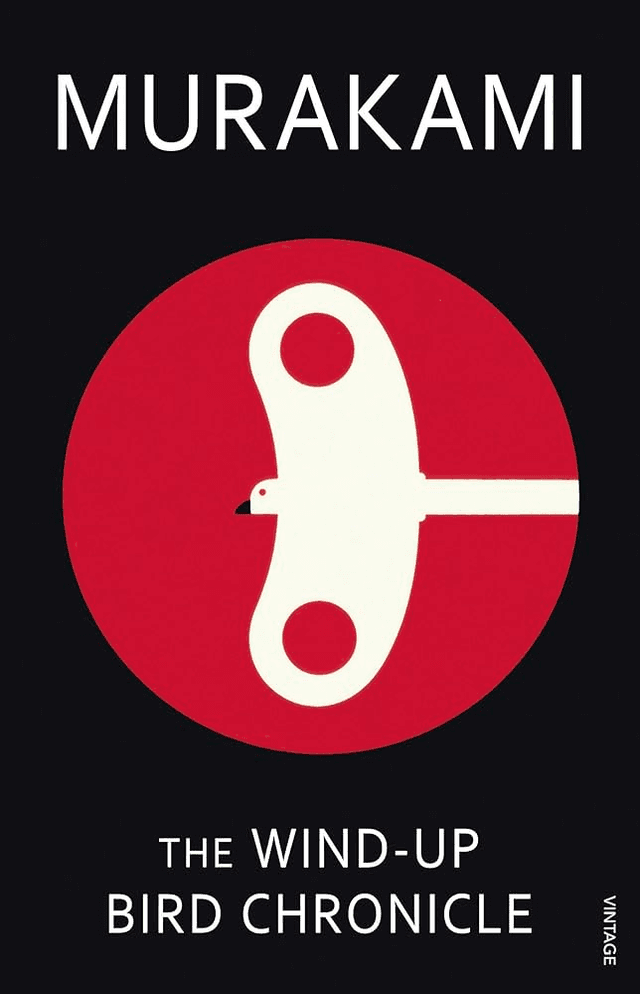The Wind-Up Bird Chronicle vs. Sapiens: A Brief History of Humankind by Yuval Noah Harari
The Wind-Up Bird Chronicle
In a Tokyo suburb, a young man named Toru Okada searches for his wife’s missing cat—and then for his wife as well—in a netherworld beneath the city’s placid surface. As these searches intersect, he encounters a bizarre group of allies and antagonists. Gripping, prophetic, and suffused with comedy and menace, this is one of Haruki Murakami’s most acclaimed and beloved novels.
Sapiens: A Brief History of Humankind by Yuval Noah Harari
The great thing about this book is that it takes a big-picture view of human history. It attempts to explain the main themes of human history without getting bogged down in the details. Sapiens also debunks many popular myths about human history, including the one that people today live happier lives and have better diets than our hunter-gatherer predecessors. It comes with an epilogue about the future of humankind in light of ever-accelerating technological progress. With the recent advances in AI it is more relevant than ever. If you're going to read one book on history this year, read this one.

Reviews
Reviews
| Item | Votes | Upvote |
|---|---|---|
| Murakami at his best | 1 | |
| Long, captivating read | 1 |
| Item | Votes | Upvote |
|---|---|---|
| They cut out some chapters in the English translation | 1 |
| Item | Votes | Upvote |
|---|---|---|
| No pros yet, would you like to add one? | ||
| Item | Votes | Upvote |
|---|---|---|
| No cons yet, would you like to add one? | ||
Frequently Asked Questions
'Sapiens: A Brief History of Humankind' by Yuval Noah Harari and 'The Wind-Up Bird Chronicle' by Haruki Murakami serve different purposes and appeal to different audiences. 'Sapiens' provides a broad overview of human history and challenges popular myths, making it a compelling read for those interested in history and anthropology. On the other hand, 'The Wind-Up Bird Chronicle' is a gripping, surreal novel that blends mystery with elements of comedy and menace, appealing to fans of literary fiction. Your choice depends on whether you prefer a historical analysis or an imaginative narrative.
'The Wind-Up Bird Chronicle' by Haruki Murakami is often regarded as a long, captivating read with a complex plot and richly developed characters. It is praised for its narrative depth and surreal storytelling. 'Sapiens' by Yuval Noah Harari, while deeply informative and thought-provoking, focuses on delivering a big-picture view of human history, which may not be as 'captivating' in a narrative sense but is highly engaging for readers interested in history and science.
'Sapiens: A Brief History of Humankind' by Yuval Noah Harari offers substantial educational value as it covers the main themes of human history and debunks popular myths. It also includes discussions on the future of humankind in the context of technological progress. 'The Wind-Up Bird Chronicle' by Haruki Murakami, while rich in literary and thematic content, is primarily a work of fiction and does not aim to educate in the same manner as 'Sapiens'. If educational value is your primary criterion, 'Sapiens' is the better choice.
'The Wind-Up Bird Chronicle' by Haruki Murakami is a better choice for fans of fiction due to its gripping narrative, complex characters, and surreal elements. It is one of Murakami’s most acclaimed novels and is highly regarded in the literary fiction genre. 'Sapiens: A Brief History of Humankind' by Yuval Noah Harari, while fascinating and informative, is a non-fiction book focused on human history.
'The Wind-Up Bird Chronicle' by Haruki Murakami is about a young man named Toru Okada who searches for his wife’s missing cat—and then for his wife as well—in a netherworld beneath the city’s placid surface. As these searches intersect, he encounters a bizarre group of allies and antagonists. The novel is gripping, prophetic, and suffused with comedy and menace.
Pros of 'The Wind-Up Bird Chronicle' include that it showcases Murakami at his best and is a long, captivating read. However, a con is that some chapters were cut out in the English translation.
'Sapiens: A Brief History of Humankind' by Yuval Noah Harari takes a big-picture view of human history. It explains the main themes of human evolution and development without getting bogged down in details. The book also debunks many popular myths about human history, such as the idea that people today live happier lives or have better diets than our hunter-gatherer predecessors. It ends with an epilogue discussing the future of humankind in light of accelerating technological progress, making it particularly relevant given recent advances in AI.
'Sapiens: A Brief History of Humankind' discusses several main themes, including the cognitive revolution, the agricultural revolution, the unification of humankind, and the scientific revolution. The book explores how these events have shaped human societies, cultures, and economies. It also delves into the impact of technological advancements on the future of humanity.
Yuval Noah Harari is an Israeli historian and professor in the Department of History at the Hebrew University of Jerusalem. He is known for his bestselling books 'Sapiens: A Brief History of Humankind', 'Homo Deus: A Brief History of Tomorrow', and '21 Lessons for the 21st Century'. Harari's work focuses on broad historical processes and their implications for the future.
Pros of 'Sapiens: A Brief History of Humankind' include its broad, comprehensive view of human history and its ability to debunk popular myths. The book is also praised for its engaging writing style and thought-provoking insights. Cons might include its broad scope, which can sometimes lead to oversimplification of complex historical events, and the fact that some readers may find its speculative future predictions less convincing.




















